We have a new booklet with information about how Future Pathways shares your content. For example, through our newsletters, website, reports and social media.
At Future Pathways, sharing the experiences, projects, art or interests of the people we support helps to show the work we do and the impact it can have. It can help people to feel connected to others with shared interests. And it can help people to learn more about what it is like to be supported by Future Pathways.
Things that people share with us include:
- their experience of being supported by Future Pathways
- creative pieces, like drawings, crafts or poems
- stories about things they have done, like raising money for certain causes or doing different activities
Sharing content like this can be a really positive experience.
We want to make sure that you feel comfortable with how we share your content with others. It is important that you have choice in how we do this. For example, you can choose where we share your content and what name we use. We also want to make sure that you are happy to agree to us sharing your content and that you understand what you are agreeing to.
We have created a short booklet that gives you information about this. It gives you answers to common questions about how we might use your content. It also suggests some things to think about before agreeing for us to use it.
You can download the booklet below. If you would like a printed version or if you have any questions, you can:
- email us at engagement@future-pathways.co.uk
- phone us for free on 0808 164 2005 (Monday-Friday, 10am to 4pm)
- write to us at Future Pathways, 40 Shandwick Place, Edinburgh EH2 4RT
Download the booklet here:
Our latest Quarterly Report is now available to view. It covers our work from October to December 2024. It shows what we’ve learnt, and includes key stats and feedback from those who access Future Pathways.
What happened in Q2
51 people registered with Future Pathways.
31 people started working with a Support Coordinator.
142 people were accessing support from at least 39 Delivery Partners.
Who we supported
The average age of people who registered with us was 47.
71% of people who registered with us live in Scotland’s most populated areas.
How people felt
We received positive feedback from people we support, and we also received suggestions for how we could improve.
People shared that they felt Future Pathways understood and cared about them. Many people also shared that they felt able to trust Future Pathways.
People also told us that some experiences such as waiting for support could negatively affect their trust in the service.
What people gained
People accessed a mix of different types of support in Q3. Many people told us they feel able to access the support that is right for them.
Many people accessed support from our Delivery Partners such as creative therapies and support work.
Many people accessed support through our Discretionary Fund such as support to make their home feel safe and comfortable, and support to explore their hobbies and interests.
People also accessed support to link up with existing services such as health and social care supports.
What difference we made
Many people shared the impact of their work with Future Pathways, for example an increase in their hope for the future.
“[Future Pathways] supplied the tools to help me to recover, as best as possible, leave the past behind and for the first time in my 66 years gave me the opportunity to look to the future.”
(Person supported by Future Pathways)
What changed for people
People shared what changed in their life after accessing support from Future Pathways. Some people fed back that they know more now about their strengths and what they can do. They also told us they feel clearer about the changes they want to make with our support.
“It has helped me get to my goals.”
(Person supported by Future Pathways)
Our full report features further infographics, feedback and a breakdown of our financial spend.
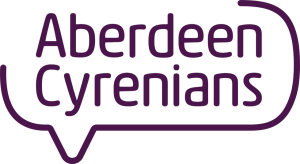
Aberdeen Cyrenians are one of our new Delivery Partners. They help people to access different types of support. Here, they tell us all about what they do and how they do it.
How did Aberdeen Cyrenians begin?
Aberdeen Cyrenians was started in the 1960s by students from Aberdeen University. They collected leftover food from their halls and started a soup kitchen. The next year, they opened a night shelter so people sleeping on the streets had a safe place to go. Since then, we have become known as a safe place for support. Our door is always open. We offer hope and assurance. People can come to us for practical and emotional support. They can build firm foundations towards a better life.
Can you tell us a bit about the kinds of support you offer?
Sure! We are here to help during tough times. We walk with people on their journey and offer support to clear the way. Everyone needs different things. So we build our support around what each person needs. We create supportive relationships, like having a friend or family member you can go to for help. Someone might need food or help to find a warm and safe place to stay. Or, they might want help with budgeting or support with anxiety. Sometimes, people need a quiet space for a cup of tea and a chat.
“We are here for anyone, no matter what stage they are at.”
Our support looks different for each person, but it could include:
- Helping people to set goals. We help people figure out what they want to achieve and how to do it. We do this in 1-to-1 support sessions.
- Group sessions. You can meet other people and do new activities in a safe and supportive space.
- Being there for people. We can go to appointments with people. We can reduce stress by acting on someone’s behalf (with their permission). And we can assist with growing new skills. We can help people to find the tools and resources they need or the activities they want to try.
“Remember – there is no shame in asking for help. We are here to support you.”
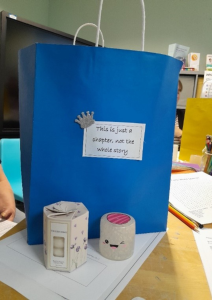
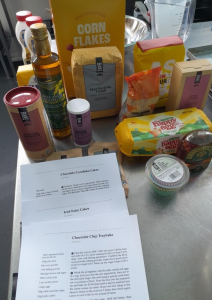
What do you think is important to people when they access support?
People want to be understood, feel safe and to have their own power. When people access support, it is really important that they feel comfortable and accepted. Everyone has their own journey. We build our support around what matters to them.
Our role is to help people see and develop their own inner strengths, so they can reach their goals. Sometimes, we need to deal with urgent things first, like finding somewhere to live, being safe, having food and not being alone. When these needs are met, it gives people the space to decide what they want for the future. It means they do not struggle alone and that they have the power to make changes.
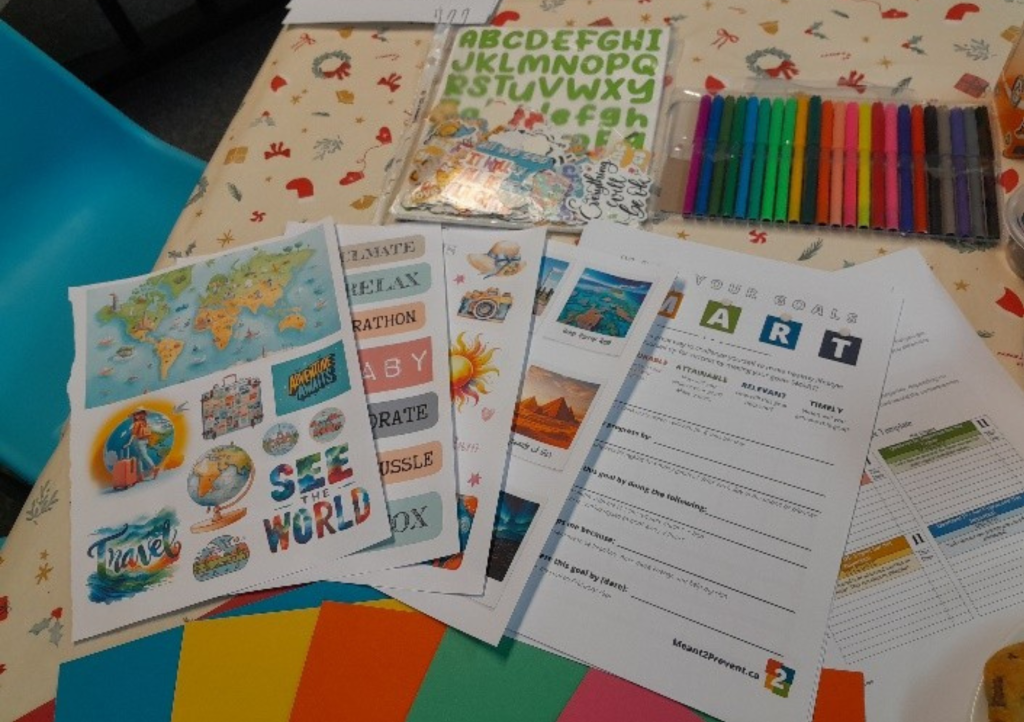
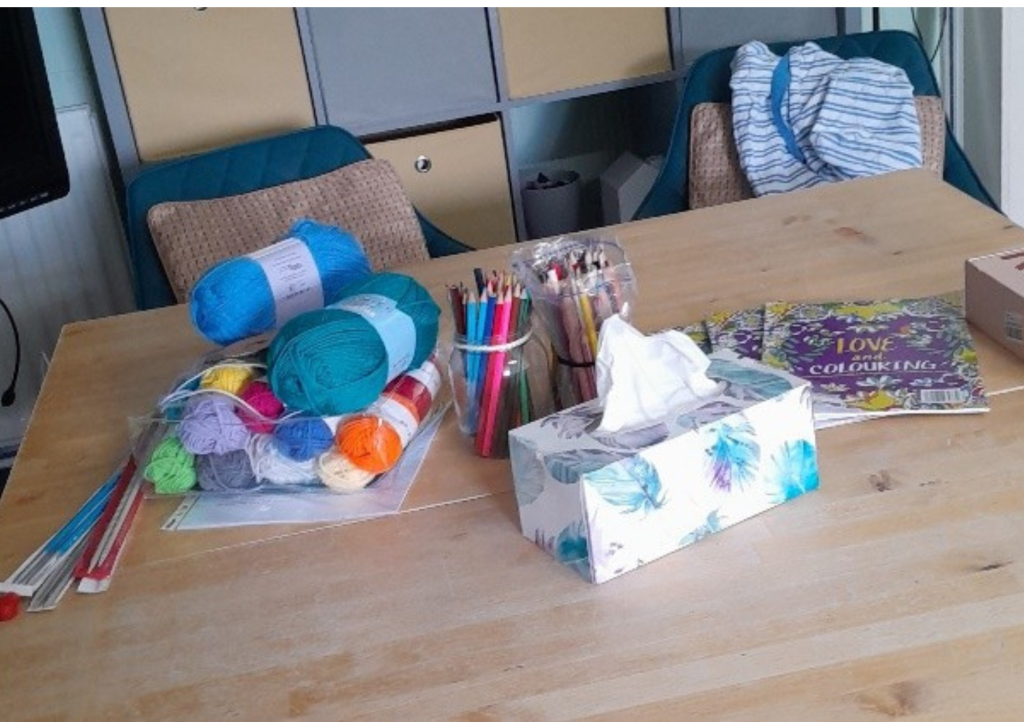
Aberdeen Cyrenians helps people in lots of different ways including:
Support and Emergency Essentials
We offer safe and welcoming support for anyone who needs help.
Housing and Homelessness
We help people to get and keep housing that is safe, stable and functional. We make sure that if homelessness does happen, it is rare, brief and does not happen again.
Violence and Abuse
We help people who are experiencing, or have experienced, abuse, violence or hate crime. We help people to feel safe. We support people to recover and to feel stronger.
Alcohol and substance related harm, mental health and wellbeing
We offer support for people who have been harmed by alcohol and substance use. We also support their mental health and wellbeing. And we help people to get past challenges and feel less alone.
Digital and Financial Support
We help people with their digital skills. And we help people to understand money issues. This means people can get skills and wellbeing for everyday life.
Independent Living
We help people to be more independent. And we make sure people have choices about their personal support.
Find out more at www.weareac.org
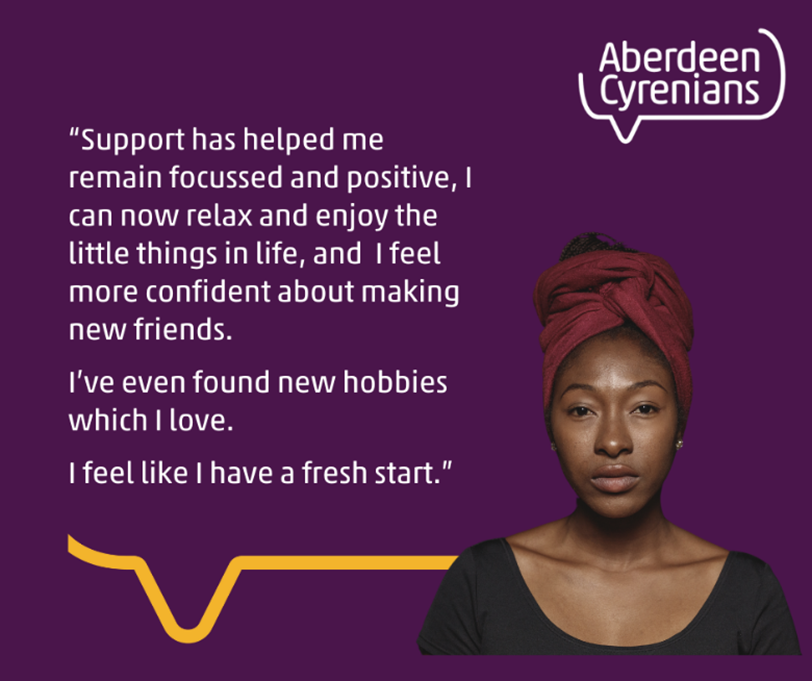
We’re delighted to share our latest animation, created in collaboration with Electrify and members of Voices for a Better Future.
Electrify is a strategic, creative communications agency. With Future Pathways, Electrify worked with Voices for a Better Future to gain insights from people with lived experience of abuse in care to develop this animation. We aimed to authentically convey what Future Pathways does, who we are for and the support we offer.
Input from members of Voices for a Better Future was crucial to this work. They helped us to show the perspective of someone on a journey of support, taking us on the path from before to during and after support. As such, we highlight milestones of support, how we work with Delivery Partners, the impact support can have, and the reassurance of Future Pathways’ presence throughout the support journey.
The animation shows how each individual is at the heart of support, taking their own pathway to a positive future. We encourage anyone who has experienced abuse and neglect in the Scottish care system to reach out to Future Pathways.
Phone us for free on 0808 164 2005 or email us at registration@future-pathways.co.uk
About Voices for a Better Future
Voices for a Better Future brings together people who experienced abuse or neglect while they were children in the Scottish care system. Members of the group want to make a difference. They want to help improve services and support for others. They make sure that the views of people supported by Future Pathways are considered in decisions about the service. You can find out more about Voices for a Better Future here.
Electrify tells us more about their work
Brendan took part in a writing workshop in Perth. Here, he tells us more about this and shares his poems with us.
Perth writers’ workshop
I was given the opportunity to go to a writers’ workshop in Perth. The hosts of the group were Professors from Oxford University. They taught us about different forms of writing. One of the methods they taught us was flash poetry. I had not heard of it before. Basically the way of it was to write as few words as possible while having a lot of impact. I enjoyed it and wrote this:
I met a girl at the station. We kissed and then got married. I should have just shook hands and left her at the station.
A selection of Brendan’s writing
The Multitude of Mankind
The multitude of mankind
Striving for immortality
As if she who is will pay no heed
To this progress of humanity
With their toxic waste through nuclear fusion
Acid rain from air pollution
And superior brains with no solution
Time has come for her absolution
But what forces can she bring to battle
Man ignores her sabre rattle
No more thunder
No more lightning
Man is far too ignorant
Too easily frightened
What has she left to aid her plight
Something else to ease this blight
Maybe ice will cool their ardour
No, not this time
She’ll try much harder
What of plague
It worked before
No not this time
They know much more
What of flood without a warning
No, man’s too adept to fall for drowning
She’s very wise this mother of earth
She’ll utilise patience to ensure their death.
The Politician
Life plays like a bad game of chance
The winners applauded
Embrace all with their thanks
And carry on regardless
Their self-image to enhance
These political people
You will not know first hand
You’ll have heard much of their rhetoric
Which you don’t understand
But as these are the people
Who help run our land
You’ll applaud like the rest
When they dictate from the stand
Don’t question our plans
When we send you to war
Just do as you’re told
Isn’t that what you’re for
Spiral into Madness
Free from your embrace
Loneliness to follow
Cast off and aloof
In self-pity I wallow
What am I looking for
Searching for answers
I don’t have the questions for
These misgivings persist
Devil sent
Even in sleep
My soul to torment
Life is so simple
I should be content
But no peace for me
Was ever meant
Unless of course
It’s heaven sent
Catch 22
We are all immobilised
Confined to a system
Which society has improvised
In order to assist them
The young citizen is mollified
Delusions of grandeur
Their parents more civilised
Conditioned the longer
The people not satisfied
Accept with a grumble
The conditions most certified
To ensure they stay humble
The classless are ostracised
Alienated all the more
By a system that has authorised
Deprivation to their door
The criminals are traumatized
Affected by their maker
Imprisoned and ratified
Authority’s best hater
If you receive our quarterly newsletter, we would like to hear your views. This will help us improve and make sure our newsletter is right for people.
We would like to know what you think about our newsletter. We will use your feedback to make the newsletter better.
If you would like to share your views with us, please do take part.
You can fill in the survey online at: https://forms.office.com/e/Sxq7817eQR.
If you would like some help to fill in the form, we can help you over the phone. You can:
- speak to your Support Coordinator
- call our registration line on 0808 164 2005
- email us at engagement@future-pathways.co.uk
We have extended the deadline for responses. The survey closes on Monday 12 May 2025. We look forward to hearing your views.

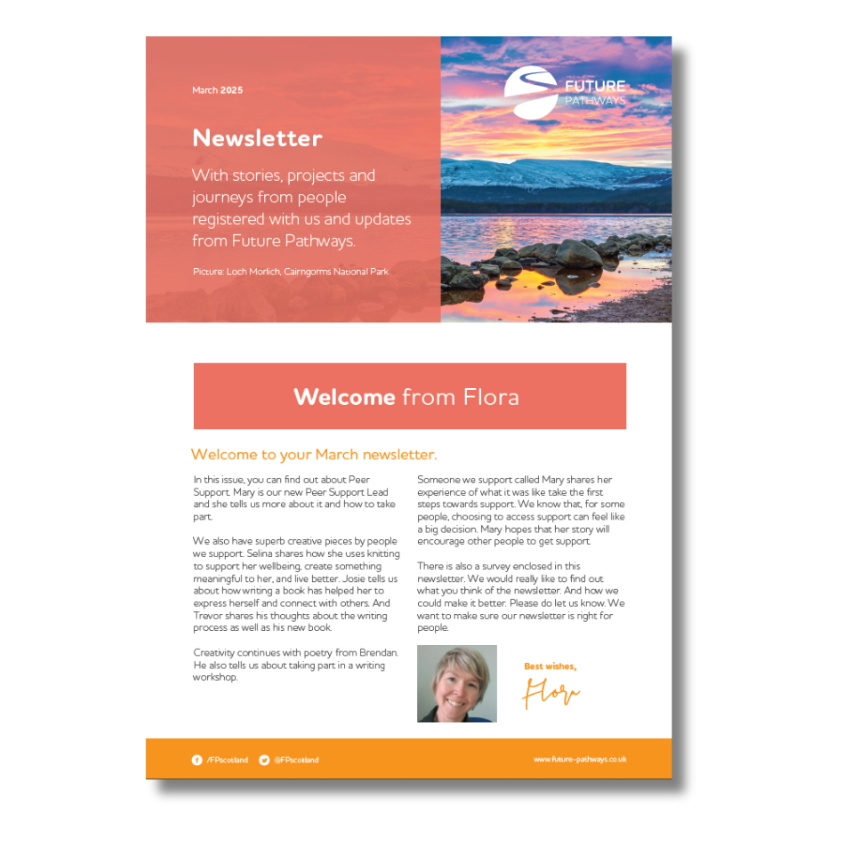

This year, Future Pathways will be offering peer support sessions. Mary, our Peer Support Lead, tells us more about it.
What is Peer Support?
‘Peer Support’ is a way of connecting with people who have gone through similar things in life. People can come together to socialise, learn and share things that have helped them get through the hard times. The special thing about Peer Support is that everyone is equal and understands each other, because they have been through something similar.
Peer Support can happen in a lot of different ways like social groups, education sessions, one-to-one catch ups or with a mentor. Peer Support is not about fixing problems. It is about being with other people who understand you, and feeling heard and accepted. Everyone gets something out of the relationship and feels connected.
Why are we introducing Peer Support at Future Pathways?
We know from feedback that people registered with Future Pathways would like Peer Support. So, we are now taking steps to make that happen.
Peer Support can help people feel less alone and more hopeful about the future. It can be nice to spend time with people who have been through what you have. And it can help people feel part of a community
What will Peer Support be like at Future Pathways?
To start with, Future Pathways will offer monthly Peer Support groups – both online and in person across the UK. Sometimes it will be a social coffee and a chat. Other times, we will get guest speakers in to teach us something we are interested in.
There is never any pressure to share your lived experience when you come to a Peer Support group. It is just about spending time with each other, connecting, meeting new people and building supportive relationships
Next steps
The first groups will be starting in the next few months. You can let me know your ideas about what is important to you in Peer Support, what you would like to do or learn, and where we should run our groups. I am also happy to answer any questions or talk more about what
Peer Support is. You can:
- email me at peer-support@future-pathways.co.uk
- phone me on 07552 393 019
When the plan is confirmed, we will send information to everyone registered with Future Pathways (including those on the waitlist). We will also share information on our website, in our newsletter and on social media.
I am looking forward to starting Peer Support with you!
Here, Selina shares how she uses knitting to support her wellbeing, create something meaningful to her, and live better.
As a child I had been taught to knit by my Granny and had, over the years, produced the occasional rather plain stocking stitch jumper or cardigan but little else.
As a survivor of in-care abuse and trauma, I was put in touch with Future Pathways through the Scottish Child Abuse Inquiry team. Re-engaging with my childhood trauma was a very hard process to go through but was needed to enable my younger self’s voice to finally be heard through the giving of my Witness Statement.
I began to find solace at this very difficult time by the simple act of picking up my knitting needles once more and free knitting a couple of blankets using different colours and textured stitches. The very act of knitting, as well as producing something warm and comforting, was crucial to maintaining my emotional well-being despite the numerous flashbacks I was experiencing.


I talked to my Future Pathways Support Coordinator about my knitting and how much I was enjoying it. Much to my astonishment, he suggested that they would help me purchase some yarn so I could knit something meaningful to me at this time.
Well, I was in yarn heaven looking online at all the colours and types of yarn on offer. I like knitting with natural fibres and found the best colour palette selection was a 4ply (quite a thin yarn) in 100% Alpaca that I could knit with double thread (i.e. one colour each from two different balls at the same time) which would enable colour transitions as well as texture.
The colours on offer started me thinking about the association I wanted to make with my knitting, my Witness Statement and the process I was going through. I began to realise that my childhood was divided into three phases: pre-boarding school in East Africa (happy); in boarding school in Scotland (miserable); and post boarding school in the desert by the Nile in Africa (happy).
I let the colours choose themselves which I know sounds odd but I literally saw the blue sky, the vivid sea, the red sand, the freezing winter etc all represented on the website screen in the yarn.
A couple of days later, 20 balls of soft and squishy alpaca were delivered to me and I knew I could work with this incredibly tactile material in an emotionally free but calm way. This would enable me to create something that would be significant at this time but also help me safely capture the awful middle part of my childhood within the happier times in Africa.


The answer was a poncho knitted in two strips in garter stitch that I could wear to keep me warm and give me comfort whilst also clearly showing in colour the three phases of my childhood.
When I knitted the first half, I used black to denote bad memories amongst the other colours. When I had completed it, I realised that even in my happy times in Africa there were a couple of black lines: a monkey being kept in a tiny cage; animals being slaughtered in the streets after Ramadan.
This struck me very much and, extraordinarily, that visual representation helped me accept and engage with the awful boarding school memories in an easier but more determined manner.
The other half of my poncho I used to represent the colours of the three countries from the kitenge cloth, to the sky, to the landscape. Putting the poncho on was such a therapeutic but comforting experience as finally the boarding school time was visually evident but sandwiched and surrounded by better memories and experiences.
There was quite a bit of alpaca left after the trauma poncho and I had this need to knit myself back into the present away from those memories. I felt that using the leftover wool might bring me peace through that linkage of past and present in my knitting.
I have always felt inspired by the natural environment around me and, in the spirit of letting the colours and textures guide me, I once again picked up my needles. I love sunrises and sunsets which are indeed “…infinitely healing in the repeated refrains of nature…” ( – Rachel Carson, Silent Spring) and I found myself knitting a Sunrise Sunset Throw to bring me colour and comfort.
Whilst the boarding school time will forever haunt me, physically knitting the memories out of me has definitely helped me to live better despite them and with them. I continue to knit inspired by nature as it is forever changing, never ceases to bring me much joy and there is never a dull day.


Trevor shares his latest book with us.
Trevor has recently written a new book. It is called In My Own Words. Trevor describes his latest book:
“The latest work is a collage of short stories and poems. I try to vary my stories to link with popular stories I read long ago. I rewrote some of my early poetry to upgrade ideas. I find
writing useful for exploring ideas or philosophy. I will write another book or two as I have a lot of things I want to explore. I would suggest to anyone that writing is positive for helping you to relate with yourself as well as others in your life.”
Trevor has written several books. They are all available on Amazon here: In My Own Words, Knocking Down the Wall and Knocking on the Wall.
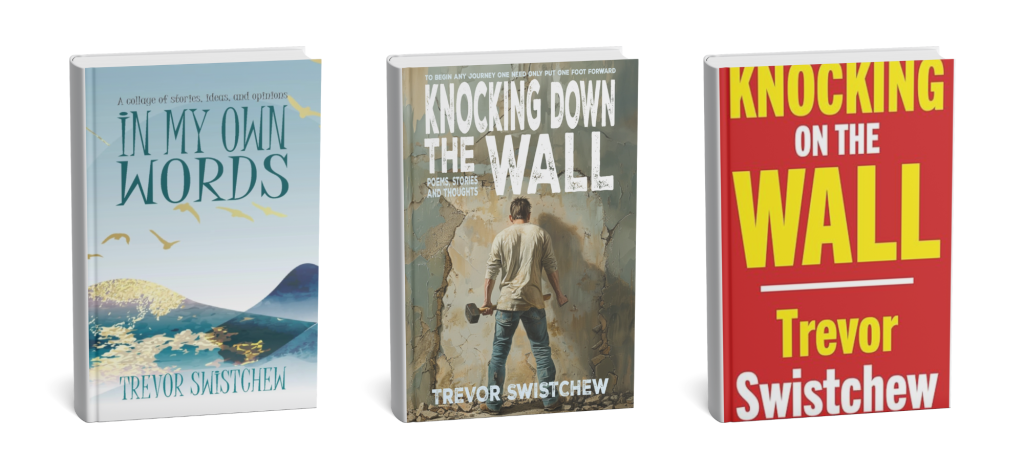
Find out more
Trevor has also shared his thoughts about writing about your own experience. His piece is called ‘Thoughts of Writing.’
Future Pathways works with the Book Whisperers. They are one of our Delivery Partners. They helps writers of all kinds to self-publish their work. We have partnered with them to help people with assisted memoir writing or to help publish books of poetry or children’s books. Discover more about their work in our Meet the Partner interview.
It can feel like a big decision to choose to get support. Here, Mary shares her experience of what it was like for her. And she tells us about why she wants others to get help too.
Hearing about Future Pathways
Mary first heard about Future Pathways from someone she knew who had also been in care. They told Mary that she should contact us for support. But Mary was not sure.
‘I kept putting it off. I thought other people needed Future Pathways more than I did. I wanted to make sure there was enough support for other people. I thought maybe the service wasn’t for me because I hadn’t been in care for as long as other people had. I felt guilty asking for help.’
After a while, Mary decided that she should access support too.
‘I’d been there. I’d been through cruelty for years. I didn’t like asking for help but sometimes you need it.’
Contacting Future Pathways
It took Mary years before she decided to phone us. Some days she would think about calling us then would choose not to. But she thought to herself:
‘Come on, the service is there for a reason. Phone them.’
When she first phoned Future Pathways, Mary felt nervous.
‘Then I told myself that there was nothing to worry about, that someone is helping me for a change. I thought about what had happened to me and why I was calling. And once I had got it in my mind that Future Pathways were there to help me, I could take that first step. After I phoned, I felt reassured.’

Getting support
Now, Mary works with her Support Coordinator to get the right support for herself.
‘I can talk about what happened to me and I can understand it. I can make some good out of this. My Support Coordinator helped me to understand what was going on. I feel entirely different now.’
Mary’s friends have seen a change in her too.
‘My friends have noticed that I seem different now too, that there has been a big change in my life. And getting support for myself means my family can have a break from worrying about me.’
Spreading the word
Mary encourages other people to get support too.
‘I knew other people in the same boat. I realised people were talking about care homes and their experiences and their feelings. And I told them that I had been in care too and been abused. I told them I have been through this too and that I understand.’
Mary would like people to take the first step and get the support that they need.
‘I try to get my friends to see that they can trust Future Pathways. I say ‘Get the help you can. You won’t know until you find out. There are genuine people ready to help you.’ I feel like I have done something for my friends now by telling them that they can get support too.’
Looking ahead
Mary thought about the difference that support has made to her life.
‘I had to do something to help myself. At first, I wasn’t sure if I’d done the right thing in trying to get support. But now, I find it easier to talk about things. I feel stronger. I feel like a different person knowing that help is there. I felt like a door had been unlocked. I have a clear mind now, a better future, enjoying the rest of my life and helping other people. I had a bad start in life but it has got a better end. I’ve got a completely new life.’
Contact us
Choosing to access support can feel like a big decision. People can feel nervous or worried. Sometimes, people are not sure if the service is right for them. If you have any questions about Future Pathways, or if you need help finding out if you can get support, contact us.
Phone us for free: 0808 164 2005 (lines open Monday to Friday, 10am to 4pm)
Email: registration@future-pathways.co.uk
Web: www.future-pathways.co.uk
